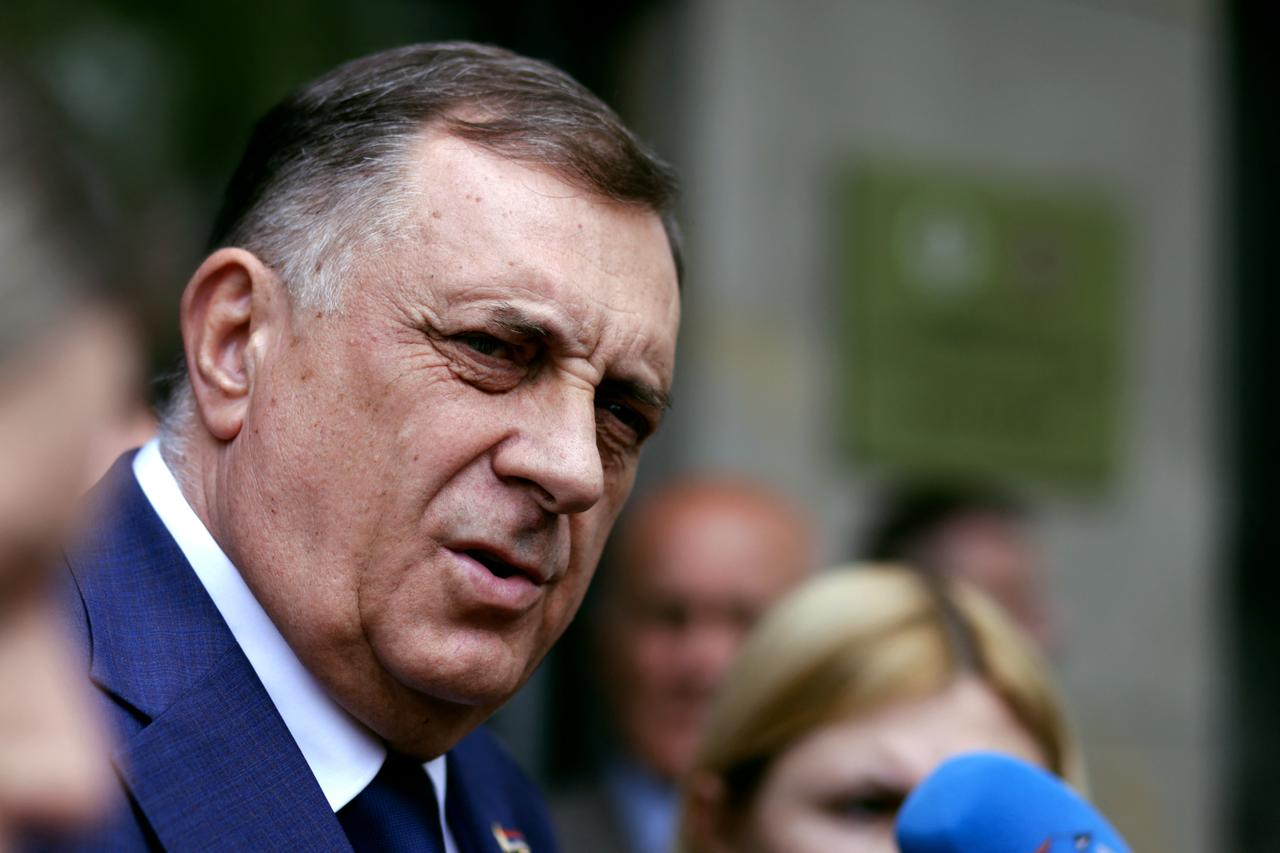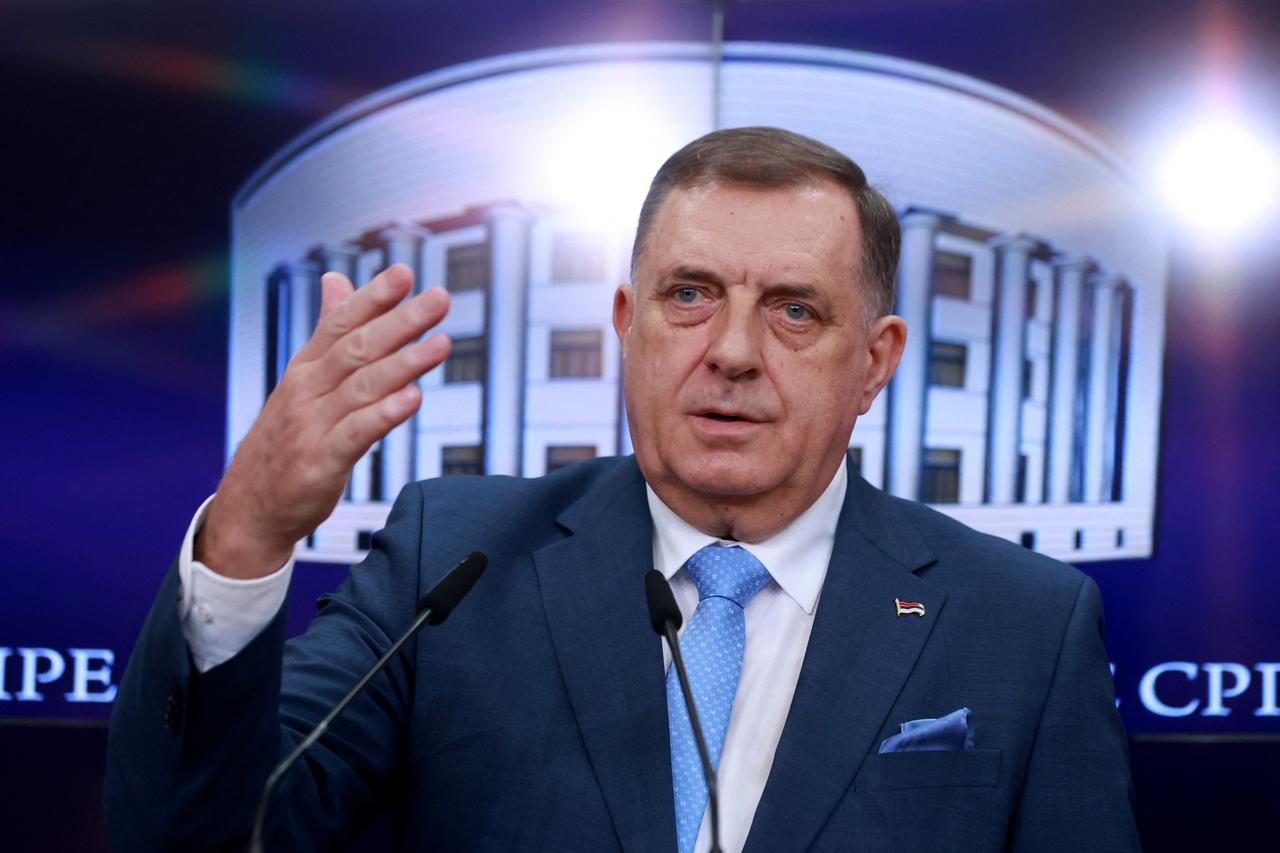
Bosnia and Herzegovina’s Prosecutor’s Office on Friday lifted an arrest warrant for Milorad Dodik, the president of Republika Srpska (RS), one of the country’s two entities, who had been charged with “threatening the constitutional order."
After months of defying calls to appear before authorities, Dodik voluntarily reported to the public prosecutor’s office accompanied by his lawyer to be questioned as a suspect in the ongoing investigation, the Prosecutor’s Office and Bosnia’s State Court said in a joint statement.
Dodik had been wanted since March 18 after he refused to comply with a summons for questioning, prompting authorities to issue a domestic arrest warrant. The standoff sparked what many observers called the country’s worst political crisis since the 1992–95 war.
Despite the warrant, the RS president traveled abroad under police protection, visiting Serbia, Russia, and Hungary. Bosnia’s request to Interpol to issue an international warrant was rejected.
Following his appearance before the prosecutor, the court accepted the prosecution’s request to terminate the arrest and detention orders. Dodik was granted conditional release and ordered to regularly report to authorities. The court warned that the arrest warrant would be reinstated if he fails to comply or resumes separatist rhetoric.

“The suspect Milorad Dodik voluntarily presented himself on July 4 before the Prosecutor’s Office of Bosnia-Herzegovina, accompanied by his lawyer, to be questioned as a suspect in the investigation,” the statement read.
Speaking to a public broadcaster, Dodik said, “It’s an important thing for me, but it’s also important in relation to those who were ill-intentioned and wanted destabilization, an escalation of problems in Bosnia through this case.”
“I don’t feel triumphalist. I’m tired of it all,” he added.
The warrant stemmed from Dodik’s actions in February, when he banned the operations of Bosnia’s central judiciary and police within Republika Srpska — a move prosecutors labeled secessionist. He was later sentenced to one year in prison and barred from holding public office for six years for defying the decisions of the international high representative overseeing the 1995 Dayton peace accord.
Dodik is appealing the ruling, and a decision is expected soon.

Tensions escalated after the National Assembly of Republika Srpska moved to block the work of Bosnia’s key judicial and law enforcement bodies — including the High Judicial and Prosecutorial Council, the Prosecutor’s Office, the Court of Bosnia and Herzegovina, and the State Investigation and Protection Agency — within RS territory. The Constitutional Court of Bosnia and Herzegovina later overturned those decisions.
Despite repeated warnings from domestic and international bodies, Dodik continued promoting a separatist agenda, including proposals for a so-called new RS Constitution that would enshrine controversial measures such as “the right to self-determination” and the “formation of an RS army.”
The Prosecutor’s Office subsequently issued the domestic arrest warrant for Dodik on charges of threatening the country’s constitutional order.